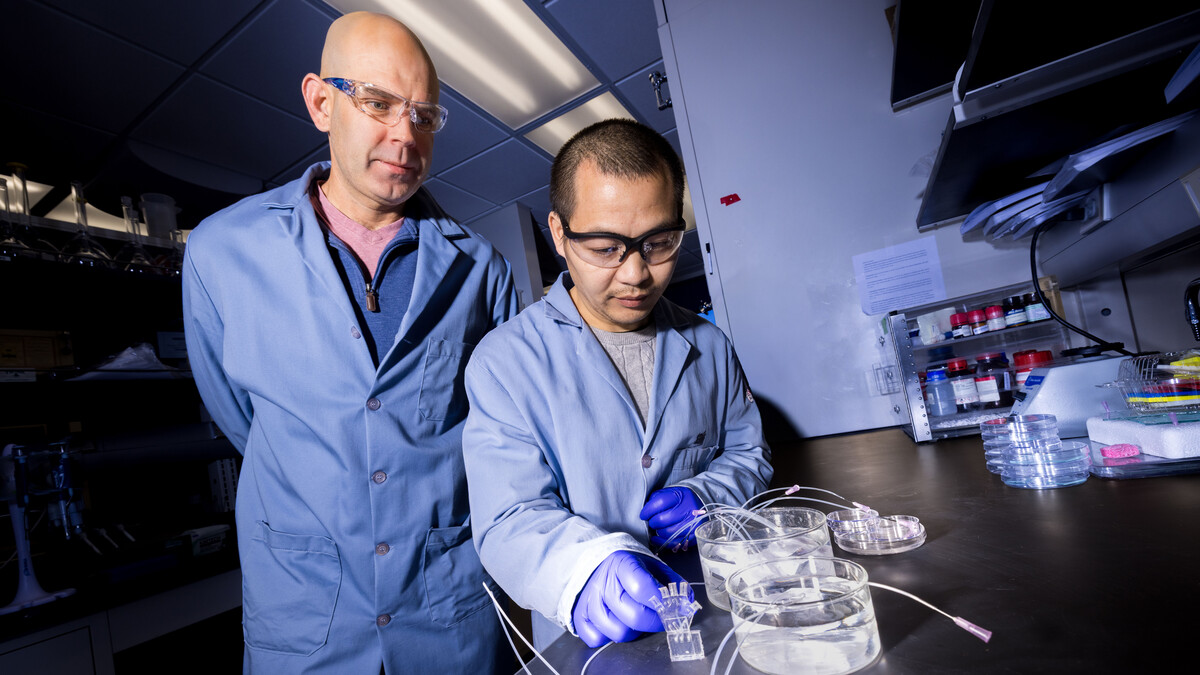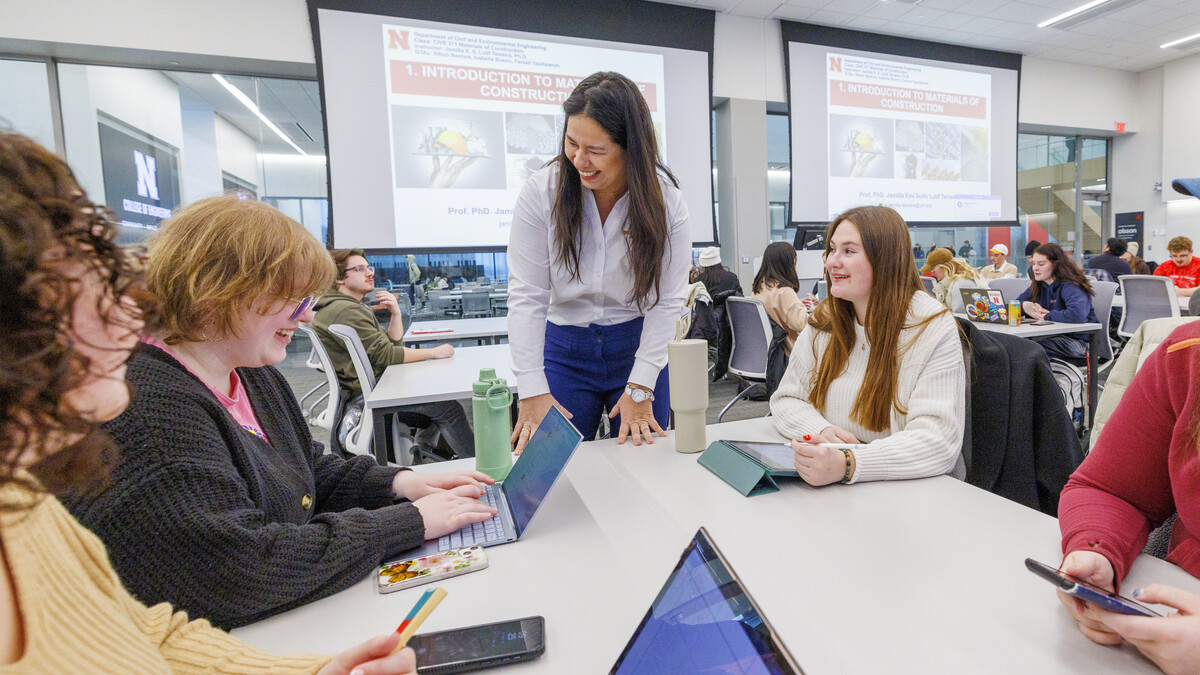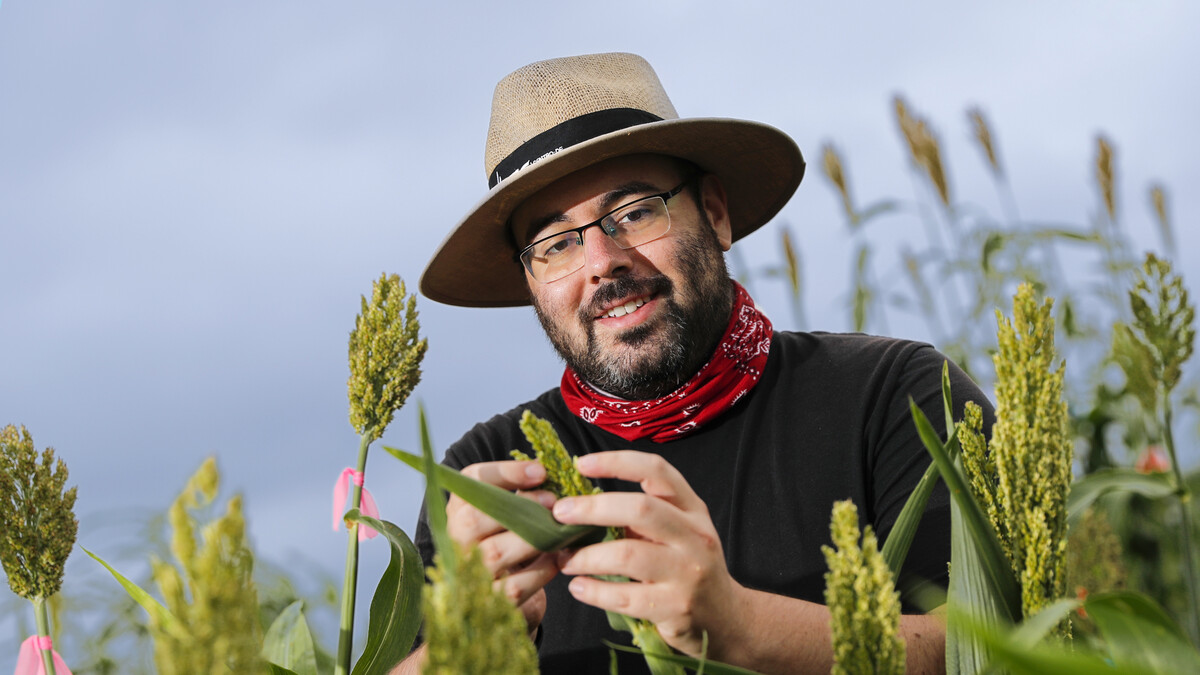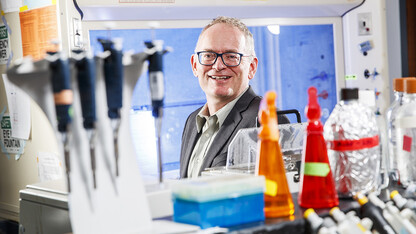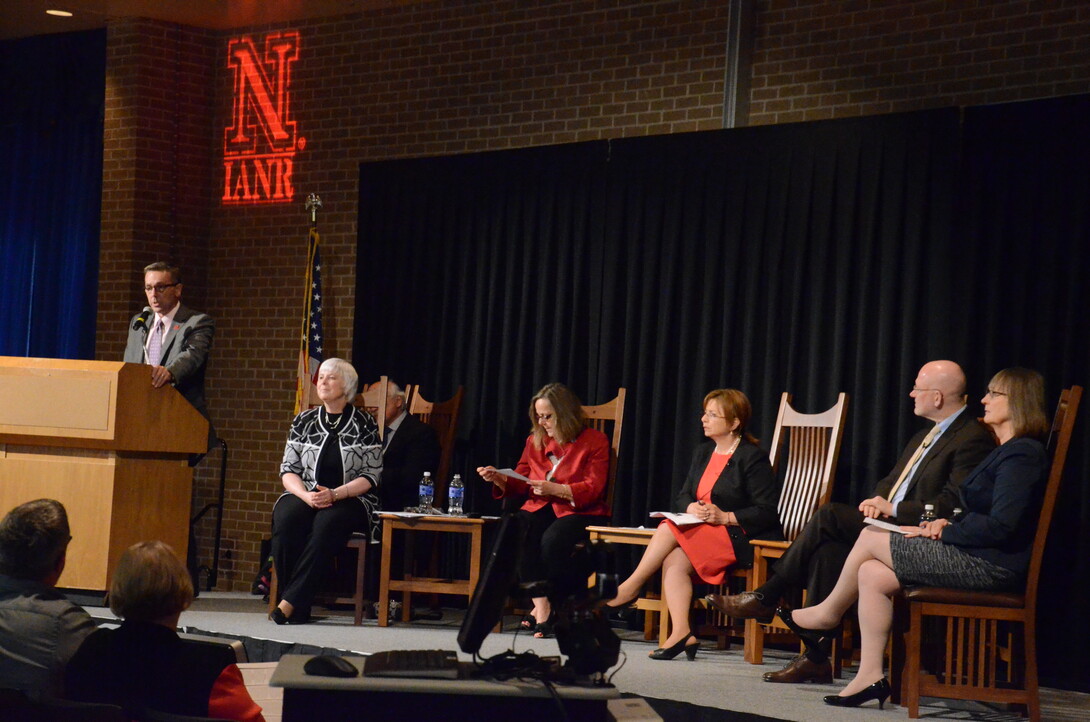
The Bill and Melinda Gates Foundation is leading a “Reinvent the Toilet” initiative and although the organization’s Chris Elias did his nervously laughing crowd a favor by not going into too much detail, it is such efforts that are key to ensuring children from the developing world thrive amid a growing global population.
Elias, who directs the foundation’s Global Development Program, was one of three panelists who addressed the topic “The Role of Water and Food Security in Early Childhood Survival and Development: A Global Perspective” at the final Heuermann Lecture of 2013-14 on April 22.
Other panelists for the University of Nebraska’s Institute of Agriculture and Natural Resources-sponsored lecture were Joan Lombardi, former deputy assistant secretary and inter-departmental liaison, early childhood education, in the U.S. Department of Health and Human Services, and Nurper Ulkuer, former head of the Early Childhood Development Unit and senior adviser for early childhood development at UNICEF.
Children who experience chronic malnutrition during the first 1,000 days of life face stunting and compromised brain development. As many as 250 million children are not developing to their full potential because of poverty, poor nutrition and environmental risk factors.
Food security, safe and plentiful water and sanitation are all factors in prevention.
While the number of children dying before turning 5 has dropped steadily in the last 50 years from 20 million to 6.6 million, too many are stunted during those early years and never develop to the potential they should, Elias said.
“We’re making some progress but not nearly as much as we need to,” Elias said.
Achievement gaps for children who are stunted begin to show up as early as 9 months old, Lombardi said. Children who grow up poor are more likely to have poor brain development and gaps in their vocabulary. They are less likely to have access to early education and they’re even at more risk later in life of cardiovascular disease.
Children from birth to age 3 are best helped by parenting programs for their mothers and fathers, Ulkuer said, while center-based educational programs are key from 3-6. Mothers in the developing world may have no choice but to work, but if they leave their young child at home alone or with an older child as caregiver, that child is likely to end up stunted.
Success begins with maternal nutrition before the child is born, Elias said. Breastfeeding and a transition to nutritious food for the child must follow. Access to contraception also is key, he added, estimating that up to one-third of the remaining child mortalities would disappear if women spaced their pregnancies at least 36 months apart.
And, about those toilets. Elias said sanitation is a critical factor, and just getting people to use toilets is only a partial solution, especially since waste from many toilets in the developing world is not disposed of safely, ending up in the environment and contributing to disease.
The Gates Foundation’s “Reinvent the Toilet” initiative starts with the understanding that western toilets that use a gallon or more of water with each flush are not viable in the developing world. So, the initiative is focusing on self-contained toilets that would allow recovery and reuse of waste for other purposes including crop fertilization, said Elias, who recently attended a “toilet fair” in India.
Panel moderators were Marjorie Kostelnik, dean, UNL College of Education and Human Sciences, and Helen Raikes, Willa Cather professor, UNL Department of Child, Youth and Family Studies.
Heuermann Lectures focus on providing and sustaining enough food, natural resources and renewable energy for the world’s people, and on securing the sustainability of rural communities where the vital work of producing food and renewable energy occurs.
Lectures are archived at http://heuermannlectures.unl.edu. They’re also broadcast on NET2 World at a date following the lecture.
The Heuermann Lecture series will resume in September.



